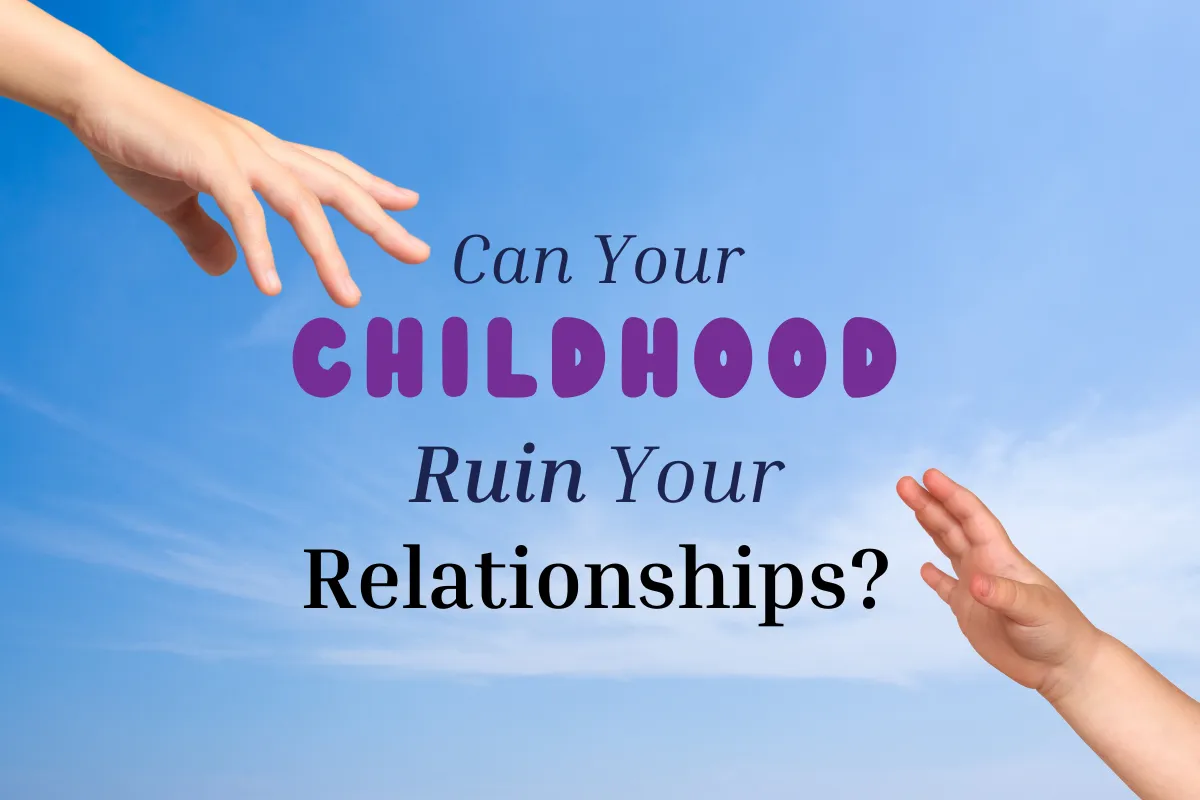
Can Your Childhood Ruin Your Relationships?
"Early childhood adverse experiences can significantly affect an adult's life. ... However, psychotherapy and other therapeutic approaches ... can significantly improve your struggles from the past." - Dr. Claude R. Shema
Childhood Experience and Adulthood Relationship and Behavioral Issues?
It is true that childhood experiences such as trauma can significantly impact adult relationships, affecting attachment styles, trust, communication, and emotional regulation. Trauma can lead to difficulties forming secure attachments, making it challenging to trust others and experience intimacy. It can also manifest as emotional dysregulation, making it hard to manage conflict and express needs effectively.
Yet, it is also true that despite adverse childhood experiences safe and secure relationships are still possible, especially when supported by learning, psychotherapy, and the help of professionals.
Do We Understand How Childhood Trauma Affects Relationships?
Attachment Issues:
Childhood trauma can disrupt the development of secure attachment patterns, leading to difficulties forming close and stable relationships. Some individuals may become overly dependent, while others may avoid intimacy altogether.
Trust Issues:
Past experiences of betrayal or neglect can make it difficult to trust others, even when there is no evidence to suggest a lack of trustworthiness.
Communication Problems:
Trauma can hinder the development of healthy communication skills, making it hard to express emotions and needs effectively. This can lead to misunderstandings, resentment, and emotional distance.
Emotional Dysregulation:
Trauma can affect the ability to regulate emotions, leading to heightened reactions, difficulty managing anger, and emotional shutdowns during conflict.
Relationship Patterns:
Individuals with a history of trauma may unconsciously recreate unhealthy relationship patterns from their past, perpetuating cycles of dysfunction.
Intimacy Issues:
Past trauma can impact intimacy and sexual relationships. Some individuals may find it difficult to experience closeness or fear intimacy due to past experiences.
Therapy:
Therapy, such as trauma-focused cognitive behavioral therapy (TF-CBT) or Eye Movement Desensitization and Reprocessing (EMDR), Neurofeedback (NF) a type of biofeedback that uses real-time feedback of brainwave activity to help individuals learn to regulate their brain function, can help individuals process past trauma and develop healthier relationship patterns.
Self-Awareness:
Increased self-awareness of how past trauma affects current behavior and relationships is a crucial first step in the healing process.
Building Healthy Boundaries:
Learning to set and maintain healthy boundaries is essential for protecting oneself and fostering healthy relationships.
Seeking Support:
Connecting with supportive friends, family members, or support groups can provide a sense of belonging and reduce feelings of isolation.
Practicing Self-Compassion:
Self-compassion is crucial for healing from trauma, allowing individuals to treat themselves with kindness and understanding.
Open Communication:
Open and honest communication with partners is essential for navigating the challenges that can arise from childhood trauma.
Patience and Understanding:
Healing from trauma takes time, and it's important to be patient with oneself and one's partner as they work through the process.
Conclusion
Early childhood adverse experiences can significantly affect an adult's life. In fact, many diagnosable mental and personality disorders such as Attention Deficit/Hyperactive Disorder ( ADD/ADHD), Borderline Personality Disorder, Antisocial behavior and antisocial personality disorders, to mention a few, and related comorbidities have been found to be correlated with early childhood adversities. However, psychotherapy and other therapeutic approaches mentioned above can significantly improve your struggles from the past.
Please feel free to reach out to our specialized team of professionals for help and improve your life and relationships today.
Because, you matter.
By Dr. Claude R. Shema
At Sano State Psychology, we are always happy to help. Get in touch with us HERE or by calling 587-333-6349. 💙
Disclaimer
Our content is for informational and educational purposes and is not a replacement for professional advice, diagnosis, or treatment. If you're facing mental health concerns, please seek help from a qualified professional for personalized guidance. Every individual's situation is unique, so use the information here at your discretion. While we strive for accuracy, the field of psychology is ever-evolving, and our content may not always reflect the latest research. Please prioritize your privacy by avoiding sharing personal information in comments or interactions. Your well-being is our top concern, so use our content for educational purposes, but remember to rely on professionals for your specific needs.
